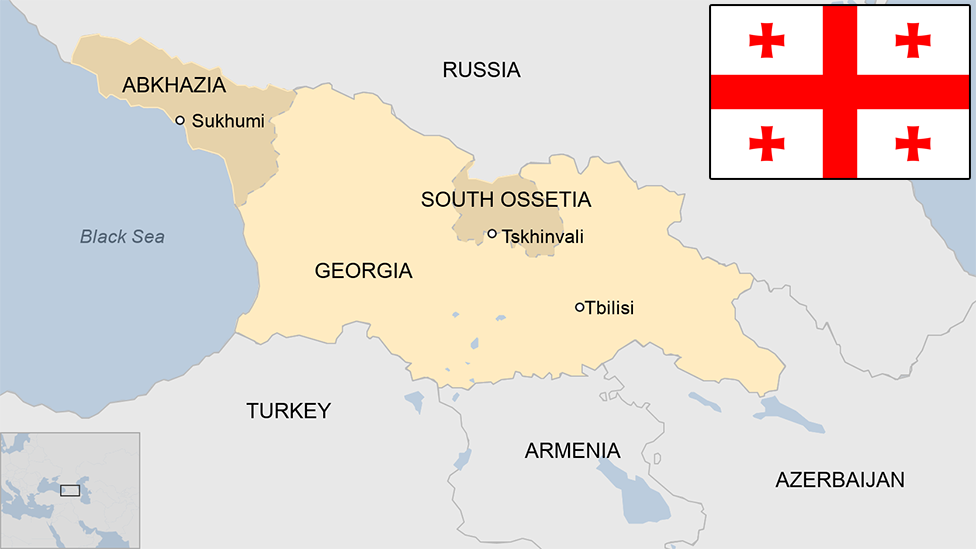Chechnya profile
- Published
This page is no longer being updated. It was last updated on 28 August 2023
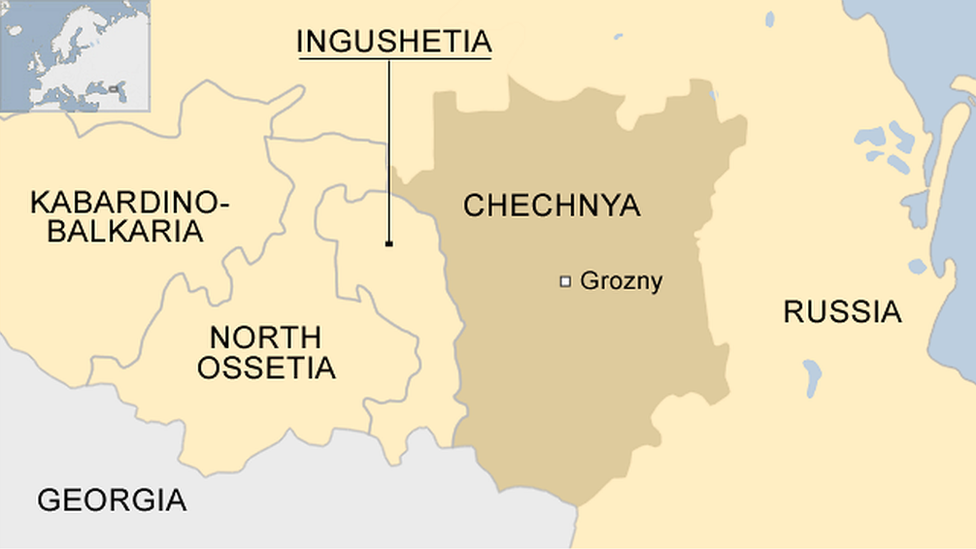
The southern Russian republic of Chechnya has long been a boiling point for conflict with Moscow in the restive North Caucasus.
After a decade of unsuccessfully fighting for independence, the autonomous region is now firmly under the control of its Russian-appointed leader, Ramzan Kadyrov, although separatist groups continue low-level guerrilla attacks.
In addition, jihadist groups, including those aligned with Islamic State terrorist organization, exist in the region.
Oil-rich Chechnya has enjoyed a period of relative stability under Mr Kadyrov. But critics have accused the pro-Moscow leader and his government of suppressing media and other freedoms, as well as human rights violations including kidnappings and torture.
Read more country profiles, external - Profiles by BBC Monitoring, external
REPUBLIC OF CHECHNYA: FACTS
Capital: Grozny
Area: 17,300 sq km
Population: 1.5 million
Languages: Russian, Chechen
Life expectancy: 70 years (male) 75 (female)
LEADERS
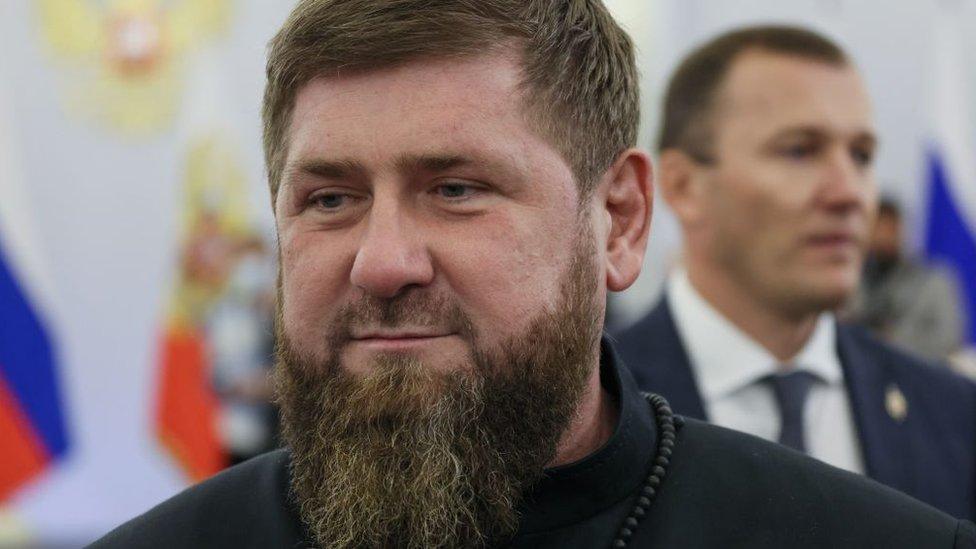
President: Ramzan Kadyrov
Ramzan Kadyrov, son of assassinated President Akhmad Kadyrov and a former rebel fighter, was nominated for the Chechen presidency by Russian President Vladimir Putin in spring 2007.
He has become one of the most powerful and most feared men in Russia, and the Kremlin relies on him to maintain order in Chechnya - a republic he rules like a personal fiefdom.
With the centralisation of political power in Russia under President Putin, Kadyrov is one of the few leaders of a constituent republic to have retained a sizeable measure of political independence.
Human rights groups have criticised him for allowing serious human rights violations to flourish in the republic. The United States has imposed financial sanctions on Kadyrov, accusing him of a systematic campaign of repression.
He has defended himself against critics, insisting that iron rule is required to bring stability.
MEDIA
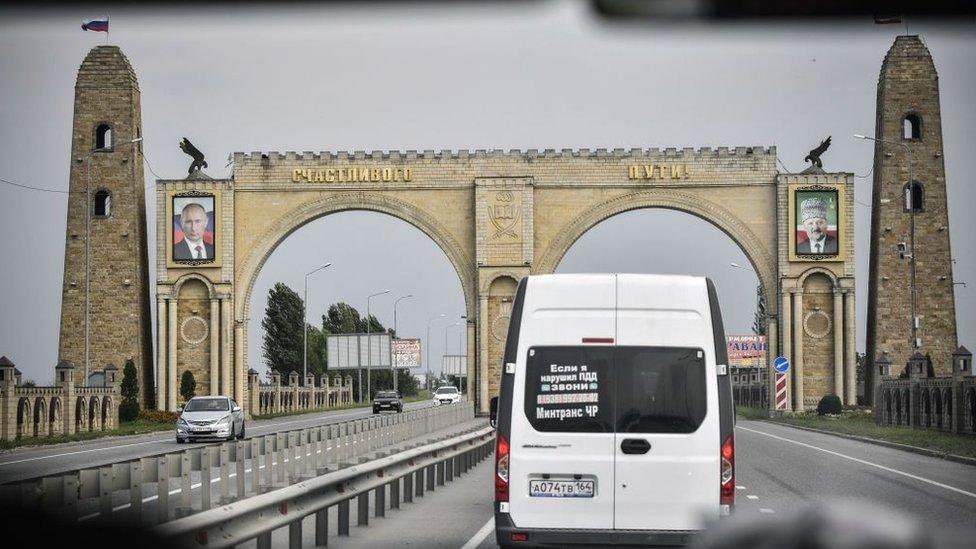
A road arch with portraits of Vladimir Putin and Akhmad Kadyrov, father of current Chechen leader Ramzan Kadyrov, in Grozny
Reporters Without Borders includes President Kadyrov on its list of "Predators of Press Freedom". Chechnya has no opposition media. TV is the most popular medium and local broadcasts fall under state control.
The Chechen government has taken steps to tighten online control. Mr Kadyrov is an enthusiastic social media user.
TIMELINE
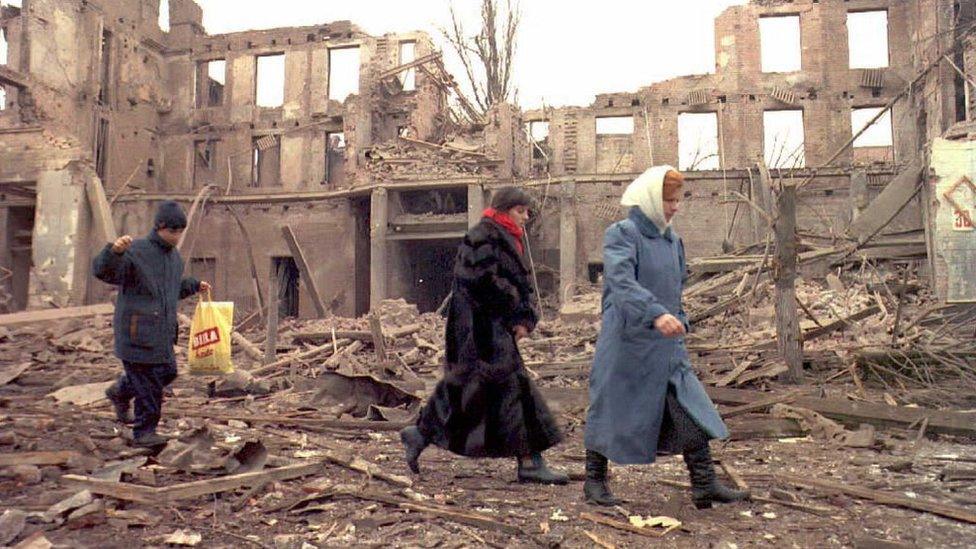
The capital Grozny was flattened in 1994 by the Russian army in its conflict with Chechnya's separatist movement
Some key dates in Chechnya's history:
1858 - After decades of violent resistance, Chechnya is conquered by Russia following the defeat of Imam Shamil and his fighters, who had aimed to establish an Islamic state.
1922 - Chechen autonomous region established. It becomes the Chechen-Ingush Autonomous Soviet Socialist Republic in 1934.
1944 - Soviet dictator Stalin deports the entire Chechen and Ingush populations to Siberia and Central Asia, citing alleged collaboration with Nazi Germany. Many thousands die in the process.
1957 - Soviet leader Nikita Khruschev allows Chechens back to the Caucasus, restores the Chechen-Ingush Autonomous Soviet Socialist Republic.
1991 - Collapse of the Soviet Union. Chechnya declares itself independent.
1994 - Russian troops are sent in to quash the independence movement. Up to 100,000 people - many of them civilians - are estimated killed in the 20-month war that follows. It is the start of nearly a decade of conflict.
1995 - Chechen rebels seize hundreds of hostages at a hospital in Budennovsk, southern Russia. More than 100 people are killed in the raid and in an unsuccessful Russian commando operation.
1996 - Russian military leaders and Chechen rebels sign a ceasefire.
1997 - Formal peace treaty signed but issue of independence is unresolved.
1999 - Chechen fighters clash with Russian troops on the Chechnya-Dagestan border; Chechen rebels carry out armed incursions into Dagestan in a bid to create an Islamic state.. Moscow blames for series of apartment block bombings on Chechen rebels, and launches the second Chechen war.
2000 - Russian troops capture Grozny; much of the city is razed. Between 25,000-200,000 civilians and combatants are killed in the war. Moscow imposes direct rule and appoints separatist-turned-loyalist Akhmat Kadyrov as head of its administration in Chechnya.
2002 - Chechen rebels seize a Moscow theatre and hold about 800 people hostage. Most of the rebels and some 120 hostages are killed when Russian forces pump in narcotic gas and storm the building.
2003 - A referendum approves a new constitution stipulating that Chechnya is part of the Russian Federation.
2004 - President Kadyrov and many others are killed in a Grozny bomb blast. Hundreds are killed or wounded - many of them children - in the Beslan school siege in North Ossetia, carried out by Chechen rebels.
2007 - Ramzan Kadyrov, the son of the late leader Akhmad Kadyrov, is appointed Chechen president by Moscow.
2007-2017 - Islamist insurgency in North Caucus between Russia and militants associated with the Caucasus Emirate and, from 2015, Islamic State groups. Incidents are mostly concentrated in the North Caucasus republics of Chechnya, Dagestan, Ingushetia and Kabardino-Balkaria.
2017 - The US says it has imposed financial sanctions on Kadyrov, accusing him of a systematic campaign of repression.
2022 - Following Russia's invasion of Ukraine, the Chechen government is outspoken in its support for Moscow, and Chechen units play a key role in some of the fighting.
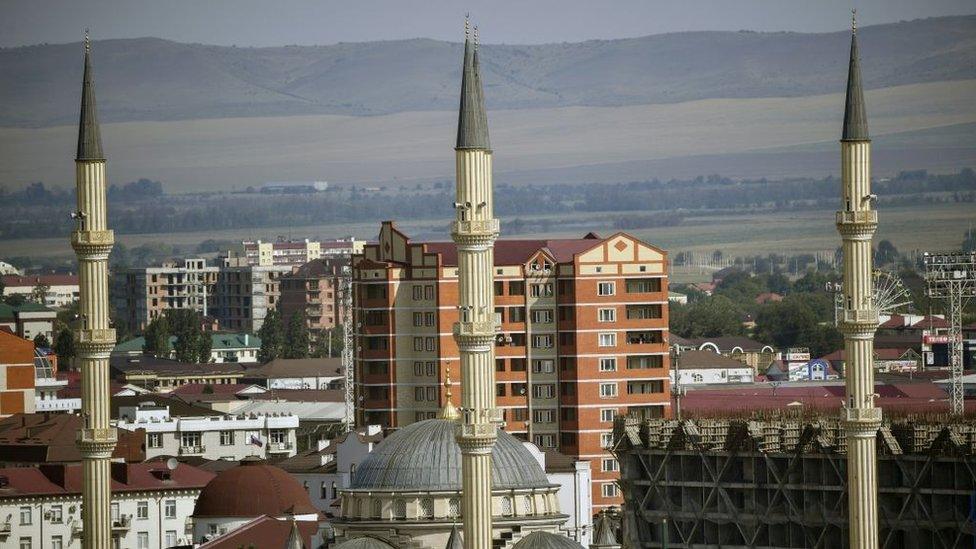
Since 2003 the capital, Grozny, has been rebuilt from scratch after being destroyed in the two wars against Russia
- Published25 March 2024

- Published28 August 2023

- Published28 August 2023
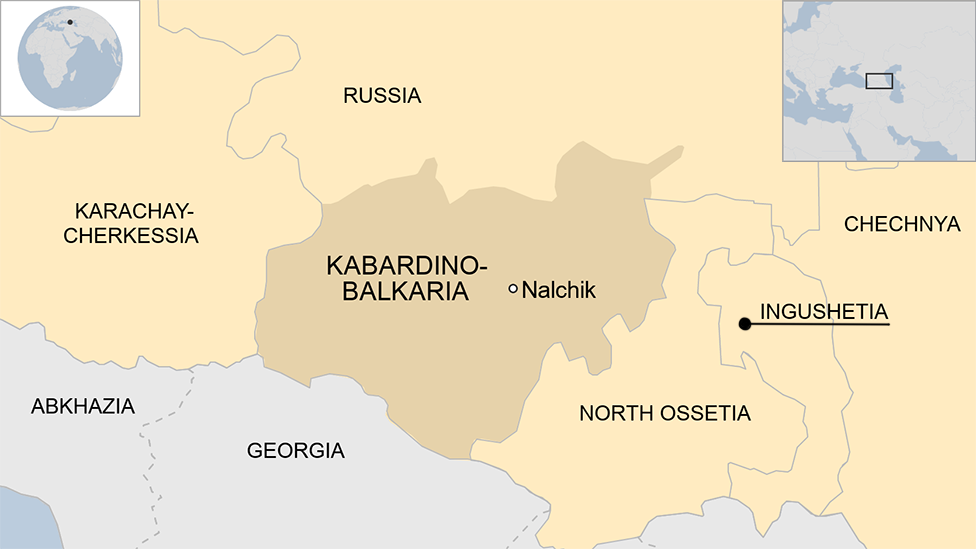
- Published17 October 2024
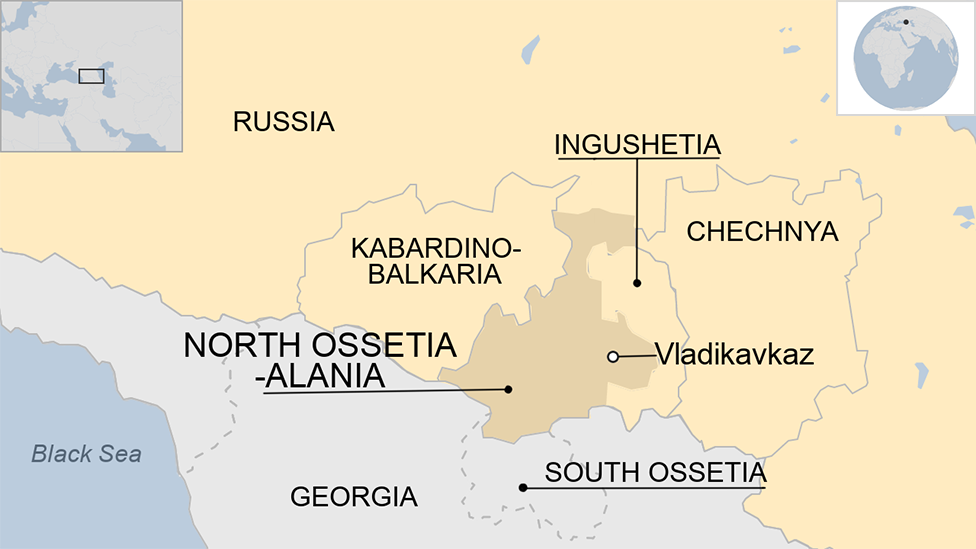
- Published28 August 2023
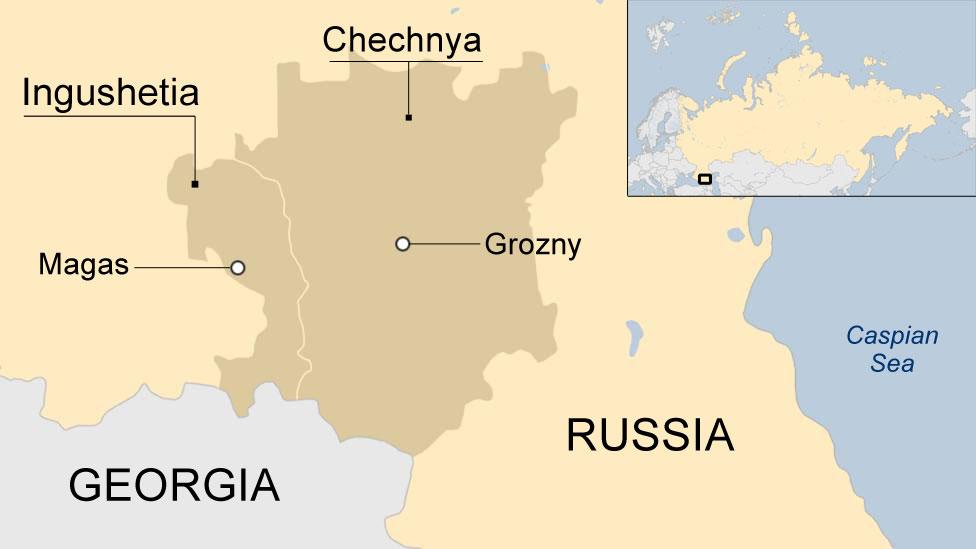
- Published30 October 2023
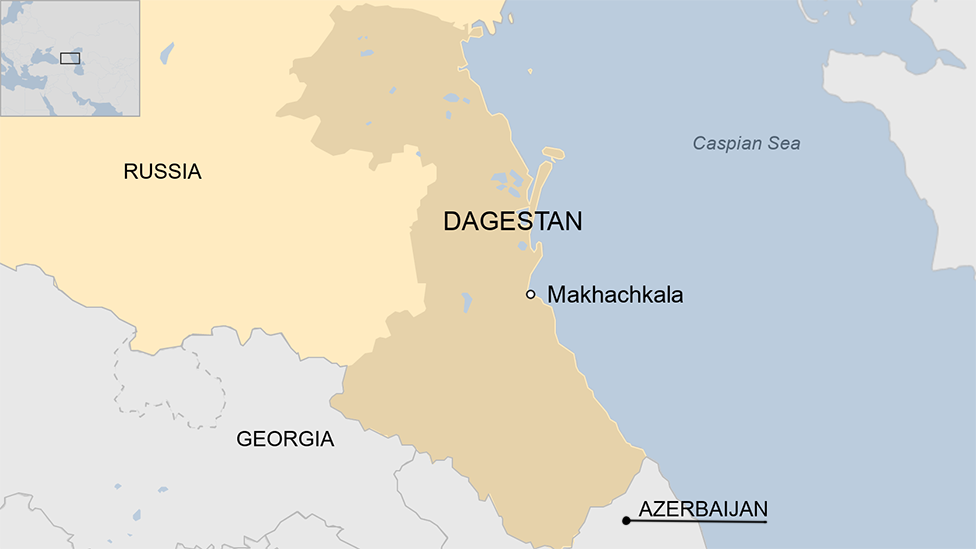
- Published25 October 2024
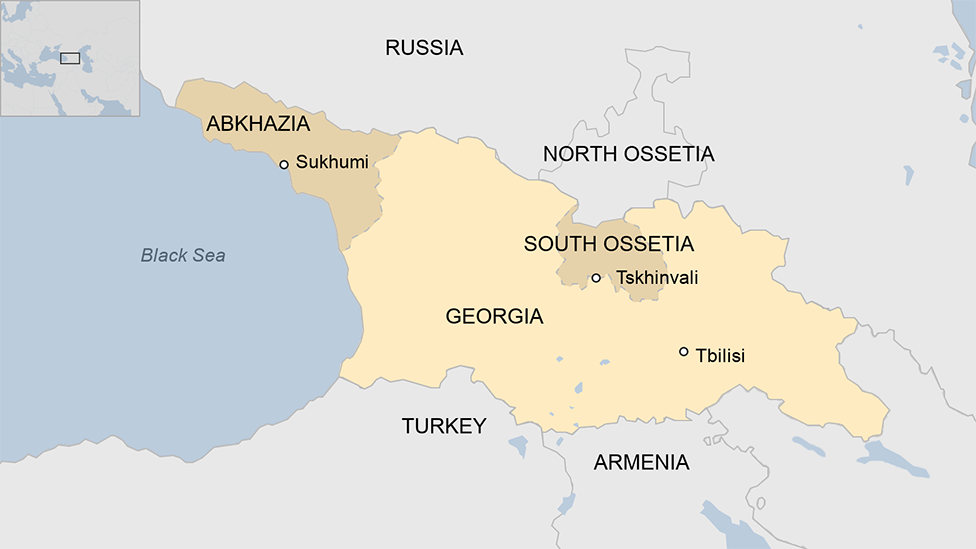
- Published19 November 2024

- Published31 December 2024
